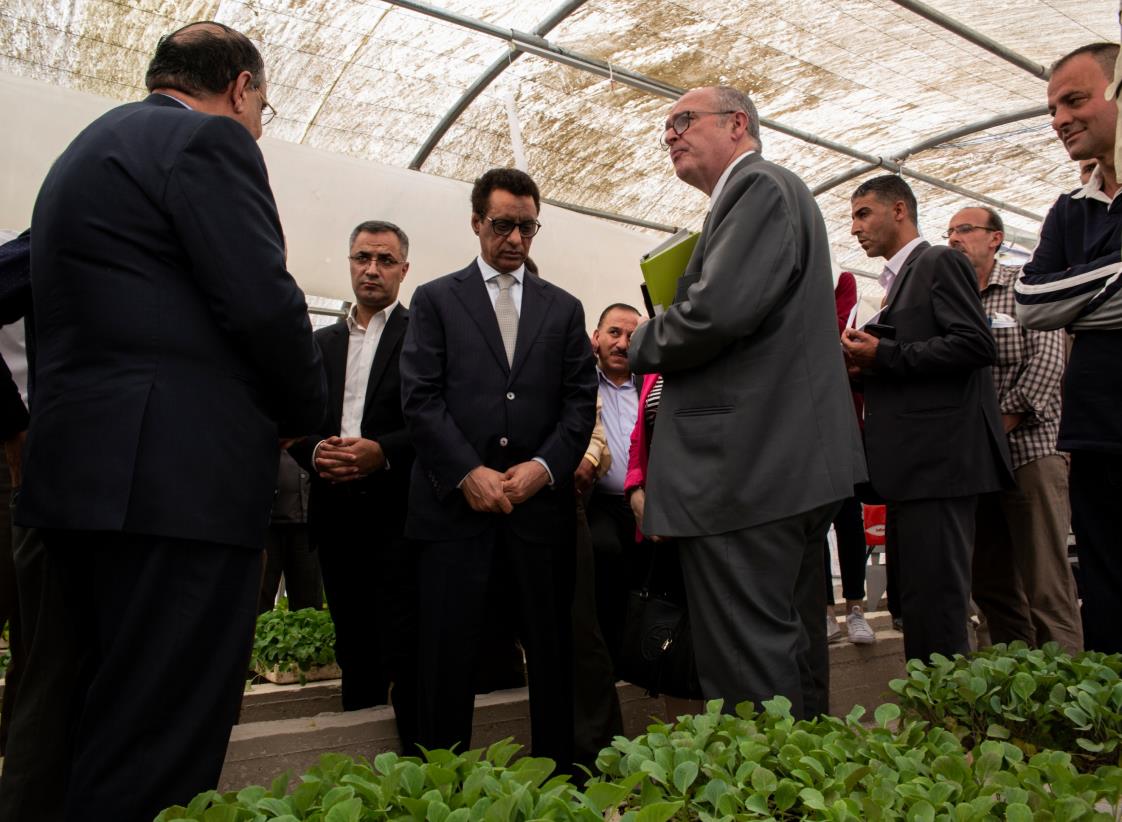An impactful World Food Day in Syria

©FAO/Syria -This year's World Food Day theme calls for healthy diets for a Zero Hunger World.
19 October 2019 – Damascus - FAO in Syria has conducted a field gathering with beneficiary farmers who produce varieties of vegetables and poultry, to discuss health diet, and their contribution to producing more affordable food for everyone to achieve Zero Hunger.
The discussion was part of FAO World Food Day, in attendance of FAO Near East and North Africa's (NENA) Assistant Director-General, Abdessalam Ould Ahmed, the Minister of Agriculture and Agrarian Reform, Ahmed Al Qaderi, FAO Representative in Syria, Mike Robson, FAO Syria and the agriculture directorate staff.
"Our Actions are Our Future - Healthy diets for a Zero Hunger World" is the WFD 2019 slogan that calls for action to contribute to ending hunger in the world. In a conflict country like Syria, FAO has focused on strengthening the farmers' resilience by the improvement of the resources and inputs to grow variety of vegetables and to produce food sustainably
More than 70 farmers and school students gathered in Al-Qutaifeh- Rural Damascus Governorate (44 KM away from Damascus city), to speak about the impact of FAO programmes and interventions to improve their agricultural practices for consumption and livelihood purposes.
This encouraged the farmers and school students who benefited from FAO Syria's interventions to meet the FAO-ADG and FAOR-Syria to speak about the challenges they have faced during the crisis; which have affected their cultivation and food production activities. The beneficiaries also spoke about the technical and awareness sessions they received from FAO specialists to produce better food items, besides using quality inputs to produce food.
"This year's WFD theme calls for healthy diets for a Zero Hunger World. The farmers have an important role to achieve Zero Hunger: farmers can plant a wider variety of vegetables and fruits to make them more affordable and available for people, they can use the natural resources effectively to ensure the sustainability of these resources, and they can help reduce food losses and waste from harvest to distribution," said Abdessalam Ould Ahmed, FAO NENA's Assistant Director General.
"FAO, with the close contribution of its partners, can help the achievement of the UN's SDG 2 - Zero Hunger - in Syria by providing farmers with the appropriate tools and techniques that will strengthen their resilience for sustainable food production," added Ould Ahmed.
The discussion with the farmers reflected FAO's efforts to build their resilience by implementing activities such as household food processing, beekeeping, animal feed production, small scale dairy production benefiting a further 20,000 households since the beginning of 2018. This is important to guarantee their own healthy consumption, and the sustainability of their income.
"FAO has closely designed its interventions based on Syria's agriculture's needs as a response to the urgent humanitarian requirements to sustain the farmers' only source of livelihood, improve the food production situation, encourage farmers and experts to adopt modern techniques, including efficient irrigation, and to mitigate any potential risk that might affect the country's food production," said Mike Robson – FAO Representative in the Syrian Arab Republic.
